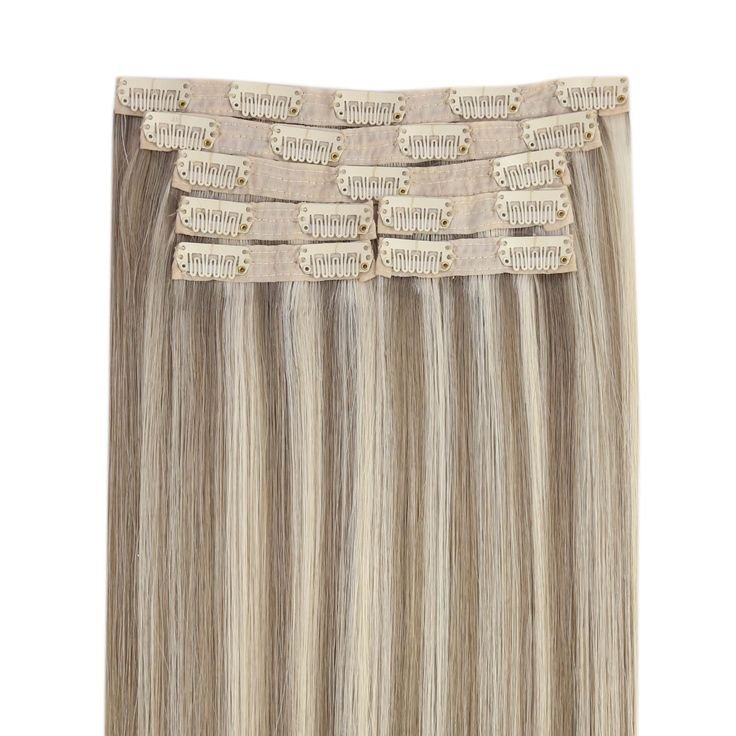Welcome, salon owners, to the world of wholesale hair extensions—where smart sourcing meets salon success. Whether you’re offering volume-boosting clip-ins, long-lasting tape-ins, or trendy weft bundles, getting your hair extensions from a trusted hair extension supplier at wholesale is a game-changing move. Why? Because it helps you maximize profits, maintain consistent quality, and keep up with client demand without breaking the bank.
In this guide, we’ll walk you through everything you need to know—from how to choose the right hair extension supplier to understanding pricing, product quality, and what to watch out for. Let’s get into it and set your salon up for long-term success.
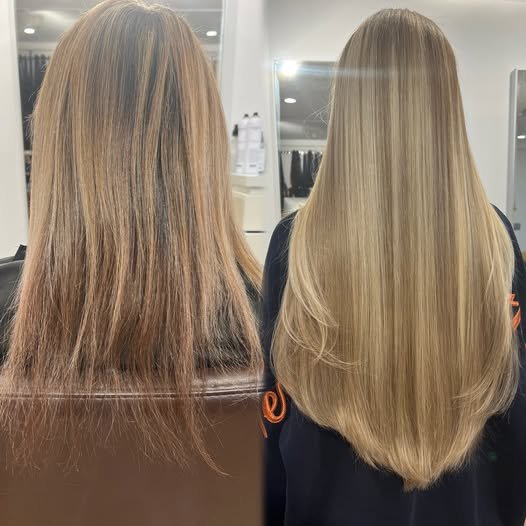
Why Salons Should Consider Buying Hair Extensions Wholesale?
Investing in wholesale hair extensions is one of the smartest business decisions a salon can make. Here’s why:
- Cost-Effective with Wholesale and Factory Pricing
Working with a reliable hair extension supplier gives you access to wholesale prices and even factory prices—meaning you save more when ordering in bulk. These savings can significantly cut down your costs and increase your bottom line.
- Boost Your Profit Margins
When you buy at a lower price, you can enjoy better profit margins on both services and retail sales. Whether you’re charging for installations or offering hair extensions for sale in your salon, buying wholesale means more revenue per transaction.
- More Variety and Customization
Wholesale hair suppliers often offer a broader selection of textures, lengths, and colors. Many also provide custom options, allowing you to tailor your inventory to meet your clients’ preferences and trends in your area.
In short, buying hair extensions wholesale helps your salon stay competitive, profitable, and better equipped to meet diverse client needs.

Types of Hair Extensions to Stock
When sourcing wholesale hair extensions, it’s essential to stock a variety of options to meet the needs of different clients and services. Here’s a quick overview of the most popular types you should consider:
Clip-In Extensions
- Clip-ins are ready-to-wear extensions with small clips sewn onto the wefts, allowing for quick, temporary installation.
- Perfect for clients looking for a temporary boost in length or volume. Easy to apply and remove, they’re a salon retail favorite.
Tape-In Extensions
- Tape-ins are wefts with adhesive tape at the base, designed to be sandwiched between sections of natural hair.
- Ideal for clients wanting a semi-permanent solution with a natural blend. These are quick to install and a go-to for many stylists.
PU Clip-Ins
- PU (polyurethane) clip-ins are seamless clip-in extensions with a thin, flexible PU base that lies flat against the scalp.
- These offer an ultra-flat, discreet finish with a soft, flexible base—great for clients who want a temporary boost in length or volume or anyone wanting a more invisible look.
I-Tip Hair Extensions
- I-tips are individual strands of hair with a small keratin tip, applied using a looping tool and beads—no heat or glue required.
- Popular for longer-lasting installs and customizable volume with a natural flow.
Weaves and Hair Bundles
- Hair bundles are a single weft hair extension pieces for sew-in weaves, glue-in weaves, or creating custom wigs.
- These are salon essentials and a staple in many wholesale orders due to their versatility and durability.
Hair Bulk
- Hair bulk is loose, unwefted hair, often used for braiding, fusion method, or hand-tied custom wigs.
- A must-have for stylists offering custom fusion extensions or custom wigs.
Stocking a mix of these extension types ensures you’re ready to meet diverse client preferences and maximize your salon’s service offerings. Always let client demand and your specialty services guide your purchasing decisions.
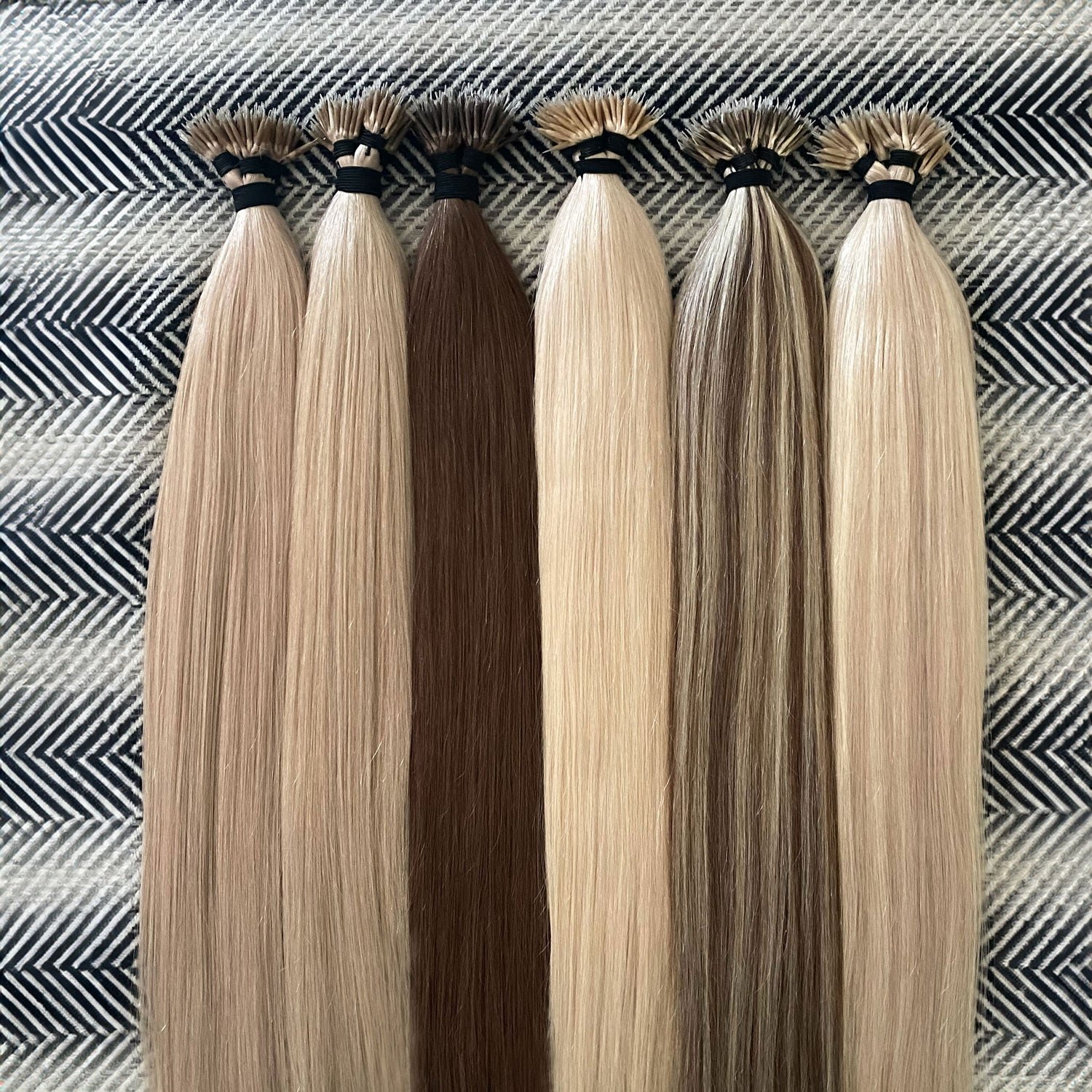
How to Choose a Reliable Hair Extension Supplier?
Finding the right hair extension supplier is crucial to your salon’s success. A reliable wholesale partner ensures you get consistent quality, dependable service, and peace of mind with every order. Here’s what to look for when choosing a supplier:
- 100% Human Hair – Especially Raw Hair
Always confirm that the extensions are made from 100% human hair, preferably raw human hair if you’re seeking the highest quality. Raw hair lasts longer, blends better, and offers more styling flexibility.
- No MOQ (Minimum Order Quantity)
Look for hair suppliers with no MOQ, especially if you’re just starting or want to test different products without committing to large quantities.
- Free Sample Availability
A trustworthy hair extension supplier will offer free or low-cost samples, so you can test the hair quality before investing in bulk.
- Fast and Reliable Shipping
Fast shipping is essential—whether you’re restocking or rushing an order for a client. A good supplier will have a track record of delivering on time.
- Excellent Customer Service and Return Policy
Responsive support, clear communication, and a fair return or exchange policy show the supplier stands behind their product.
Questions to Ask Before Partnering:
- Is the hair 100% human or raw human hair?
- Do you offer free samples or testing options?
- Is there a minimum order requirement?
- How fast do you ship, and what are your delivery options?
- What’s your return or exchange policy?
- Can you provide client reviews or testimonials?
Taking the time to vet your supplier carefully ensures a smoother experience and helps build a strong foundation for your salon’s hair extension services.
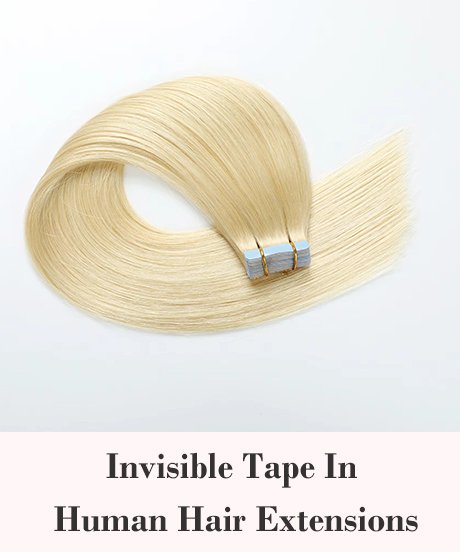
Understanding Pricing and Quality Levels
When buying hair extensions, it’s important to understand what you’re paying for. Pricing can vary widely depending on hair type, origin, and processing methods. Here’s a breakdown to help you make informed decisions:
- Virgin, Remy vs. Processed Hair
- Virgin Hair: The highest quality. It’s 100% unprocessed human hair (no dye, no perm, no bleach), collected from a single donor with cuticles intact and aligned. It’s the most expensive, but also the most durable and natural-looking.
- Remy Hair: Still high quality, but lightly processed. Remy hair is collected from different donors and is processed to ensure cuticles face the same direction and are intact.
- Non-Remy Hair: Cuticles are not intact and aligned. Chemically treated for uniformity or shine. It’s cheap but may not last as long or style as well.
- Single Drawn vs. Double Drawn vs. Super Double Drawn
- Single Drawn: Contains hairs of mixed lengths, with around 50–60% of strands at the advertised length. The ends appear thinner.
- Double Drawn: Has more uniform length (about 70–75%), giving a fuller appearance from top to bottom.
- Super Double Drawn: Contains 90–95% of hairs at the same length. It’s the fullest and most luxurious option—ideal for premium clients.
- Why Price Varies
- Pricing depends on several factors:
- Hair Origin (e.g., Vietnamese, Indian, Burmese): Some origins are naturally thicker, softer, or more durable, affecting the price.
- Processing Level: Raw and virgin hair costs more due to the scarcity.
- Length and Density: Super double drawn hair requires more sorting and is thick from root to tips, which increases cost.
Understanding these pricing and quality levels helps you make smart purchasing decisions and serve a broader range of clients without compromising on value.
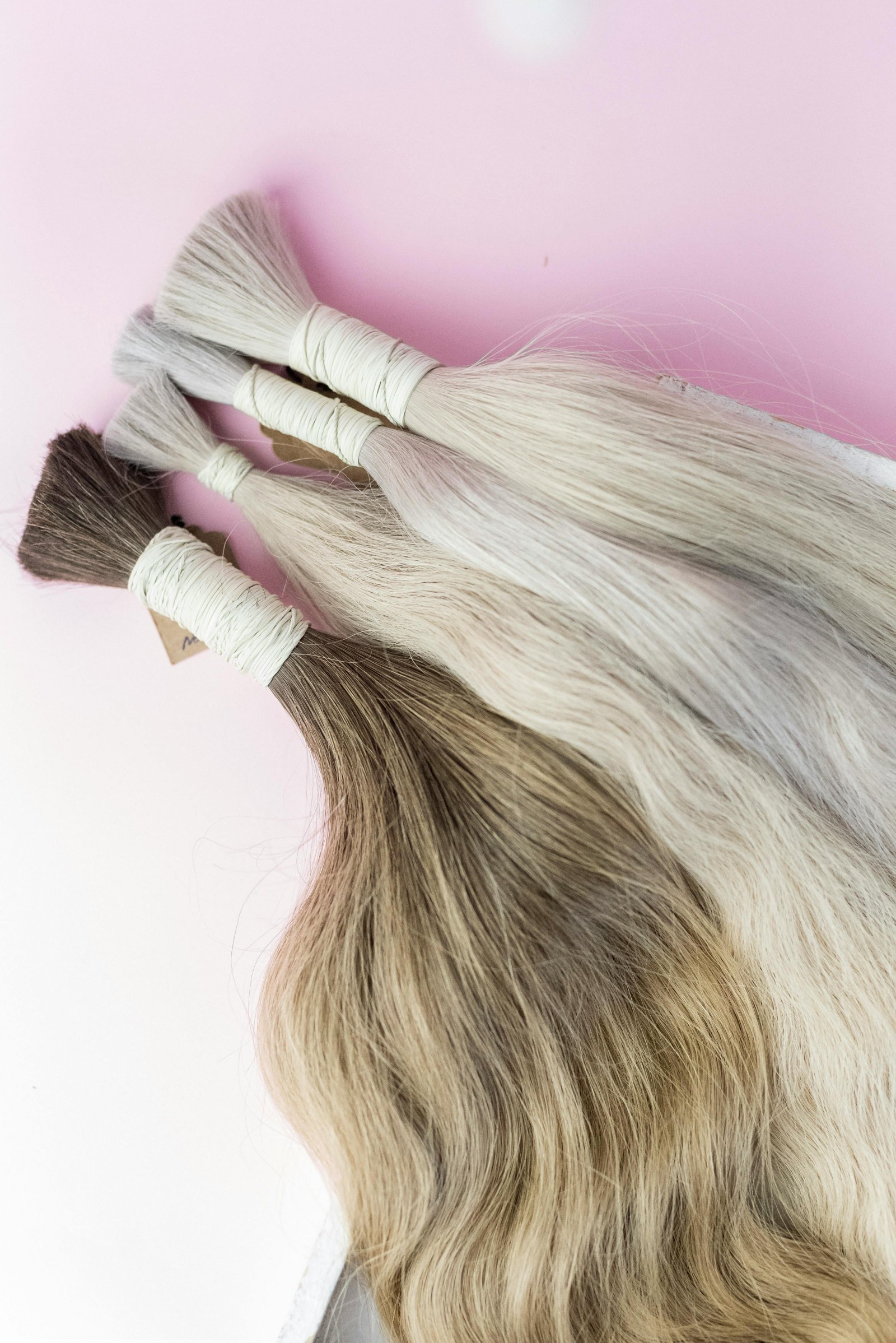
Tips for First-Time Wholesale Buyers
If you’re new to buying wholesale hair extensions, taking the right first steps can set your salon up for long-term success. Here are some helpful tips to guide you:
- Start Small with Samples
Before placing large orders, always test the quality. Request samples from your hair extension supplier—especially for high-ticket items like raw human hair—to evaluate texture, shedding, tangling, and overall performance.
- Track Customer Feedback
Pay attention to what your clients love (and what they don’t). Use their feedback to guide future wholesale purchases and expand your most in-demand options.
- Build a Relationship with Your Supplier
Good communication is key. A reliable hair extension supplier can help you with restocks, custom orders, product recommendations, and even better deals over time. Developing a strong partnership is just as valuable as the product itself.
- Offer Custom Services
Consider creating add-on services like coloring, cutting, or installation bundles. This not only adds value for your clients but also helps you stand out from other salons.
Taking your time to understand the market, testing products, and growing your business step by step will ensure you make smart, sustainable wholesale decisions.
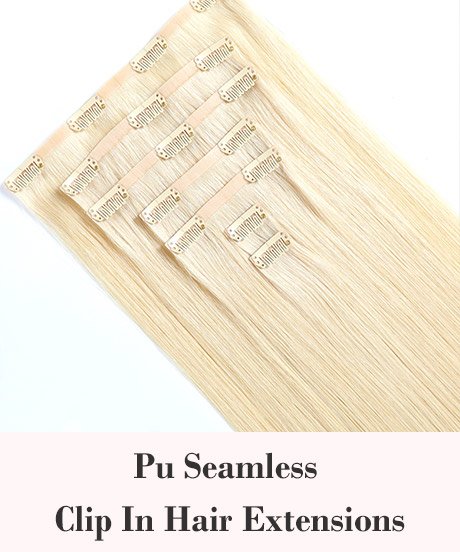
Conclusion
Buying hair extensions wholesale is a smart, strategic move for salons looking to boost profits, expand service offerings, and deliver consistent quality to clients. From lower factory prices and better margins to access to a wide range of products like raw human hair and seamless clip-ins, partnering with the right hair extension supplier can take your business to the next level.
At HairExtensionSupplier.com, we’re here to support your salon with premium-quality extensions, flexible no MOQ options, fast shipping, and exceptional customer service.
Ready to get started? Request a free sample today or contact our team for expert guidance on choosing the right hair extensions for your salon.
Related Articles:
How to Start Selling Hair Extensions on Instagram?
How to Identify High-Quality Hair Extensions?
What to Look for in a Reliable Hair Extension Supplier?
The Pros and Cons of Different Hair Extension Methods





